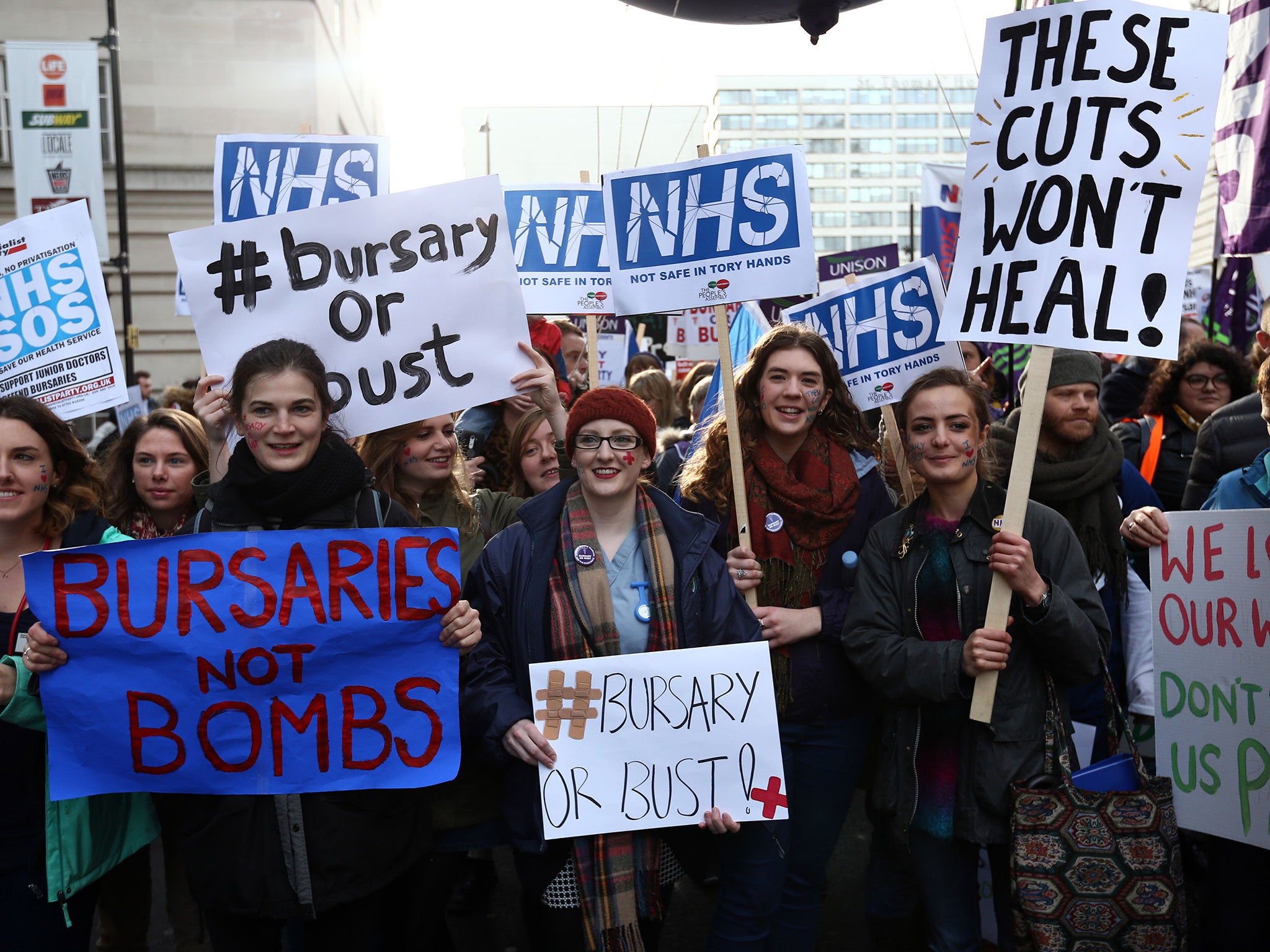Support the junior doctors against Jeremy Hunt - but don't forget the nurses, who stand to lose so much more
It was a nurse who held my hand in my father's final moments and a midwife who helped my wife to breastfeed our daughter after she had been in hospital for a week and was exhausted

Your support helps us to tell the story
From reproductive rights to climate change to Big Tech, The Independent is on the ground when the story is developing. Whether it's investigating the financials of Elon Musk's pro-Trump PAC or producing our latest documentary, 'The A Word', which shines a light on the American women fighting for reproductive rights, we know how important it is to parse out the facts from the messaging.
At such a critical moment in US history, we need reporters on the ground. Your donation allows us to keep sending journalists to speak to both sides of the story.
The Independent is trusted by Americans across the entire political spectrum. And unlike many other quality news outlets, we choose not to lock Americans out of our reporting and analysis with paywalls. We believe quality journalism should be available to everyone, paid for by those who can afford it.
Your support makes all the difference.Since the general election, the ongoing junior doctors' dispute has taken up so much air time and political debate that another key group of NHS workers has been largely ignored. I am, of course, referring to our nurses and midwives.
While not required to study for as long as doctors, both nurses and midwives nevertheless have to complete a degree course. While their standard hours are officially 37.5 to 40 hours per week, many work extra nights, weekends and bank holidays just to earn enough to provide for themselves and their families. A Royal College of Nursing report from 2015 found that 35 per cent of nurses have to work 12-hour shifts.
Nurses and midwives are more likely than doctors to have to go home on public transport after a night shift. Even those who can afford a car are often required to pay for parking in hospitals, at a cost of up to £600 a year, while the Chief Executive has his or her nominated free parking space.
When it comes to somewhere to live, nurses in London - even if in training - no longer have nursing accomodation provided, like my mother did when she trained in the 1960s.
Nurses and midwives will not be getting more than a 1 per cent annual pay increase, unlike junior doctors, who will be getting a 13 per cent increase in salary if they accept the new contract. Yet they are not talking of strike action. Nurses are soon to have to pay tuition fees even though it could take them 20 years to pay these back - and new nursing and midwifery students will no longer have access to maintenance grants while studying. It's no wonder that there is a shortage of 10,000 nurses in London alone and trusts are paying through the nose for agency workers.
It was a nurse who held my hand in my father's final moments and a midwife who helped my wife to breastfeed our daughter after she had been in hospital for a week and was exhausted. The nurses and midwives are without question the unsung heroes of the NHS.
So the next time you see the junior doctors picketing, spare a thought for the nurses and midwives who are getting a much worse deal. I've written in support of them to my local MP - which is something anyone can do if they think our nurses are worth as much as the doctors they support.
Join our commenting forum
Join thought-provoking conversations, follow other Independent readers and see their replies
Comments